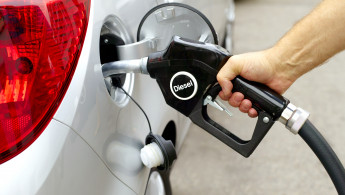Egypt increases prices of widely used diesel, other fuel amid steep inflationary pressures
Egypt on Wednesday increased the price of its widely used diesel and other fuels in a move expected to further drive up prices of other goods and services. The country, like others, faces steep inflationary pressures in the wake of Russia’s war on Ukraine.
In a statement, the country’s petroleum ministry said it would increase prices immediately. The price for a litre of diesel has been hiked from 6.75 Egyptian pounds (.36 USD) a litre to 7.25 Egyptian pounds (.38 USD), an increase of 7.4%. Other types of gasoline saw hikes of the same amount, with higher octane gasoline being hiked by 1 Egyptian pound, or 5 US cents per litre.
The move is expected to exacerbate economic pressures on the country’s poor and the middle class which have been hit hard in recent years by austerity measures dictated by the government’s ambitious economic restructuring program.
Already on Wednesday, transport authorities in Cairo, the country’s capital, announced that fares for various modes of transport, including trains, subway and taxis, would increase between 5% and 7%.
The reform program has in recent years included steep price hikes for fuel, drinking water and electricity as part of austerity measures designed to overhaul a significantly subsidised economy, still recovering from years of turmoil following its 2011 popular uprising.
In the months since the war in Ukraine started, the government has also tried to keep pace with the increasing worldwide energy prices. However, diesel fuel, on which a large portion of the society depends, was exempt from the last price hike in April.
Egyptians have been grappling with rising staple food prices and for other basic goods since the Russia-Ukraine war erupted. In June, the country’s statistics bureau announced that annual inflation reached 15.3% in May compared to 4.9% for the same month last year.
The government has been looking for finance solutions for the coming period. It has approached the International Monetary Fund and has received a promise from Saudi Arabia for $30 billion of investments, some of which are for private industry.
Earlier this month, the IMF said in a statement that it had sent a delegation to Egypt and talks were moving forward for the country to receive a new loan to support the government’s reform program.





 Follow the Middle East's top stories in English at The New Arab on Google News
Follow the Middle East's top stories in English at The New Arab on Google News


